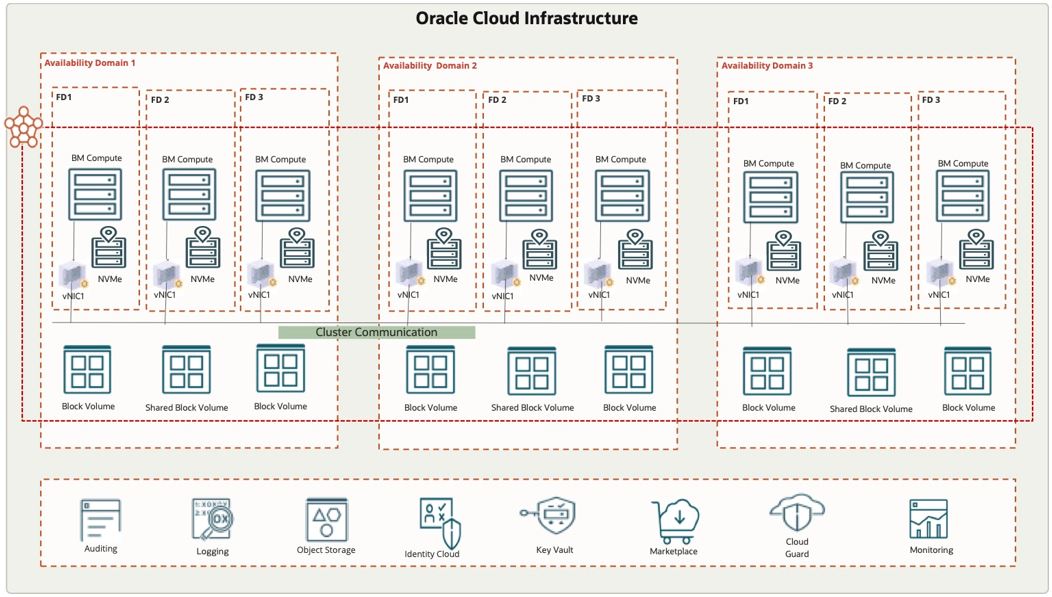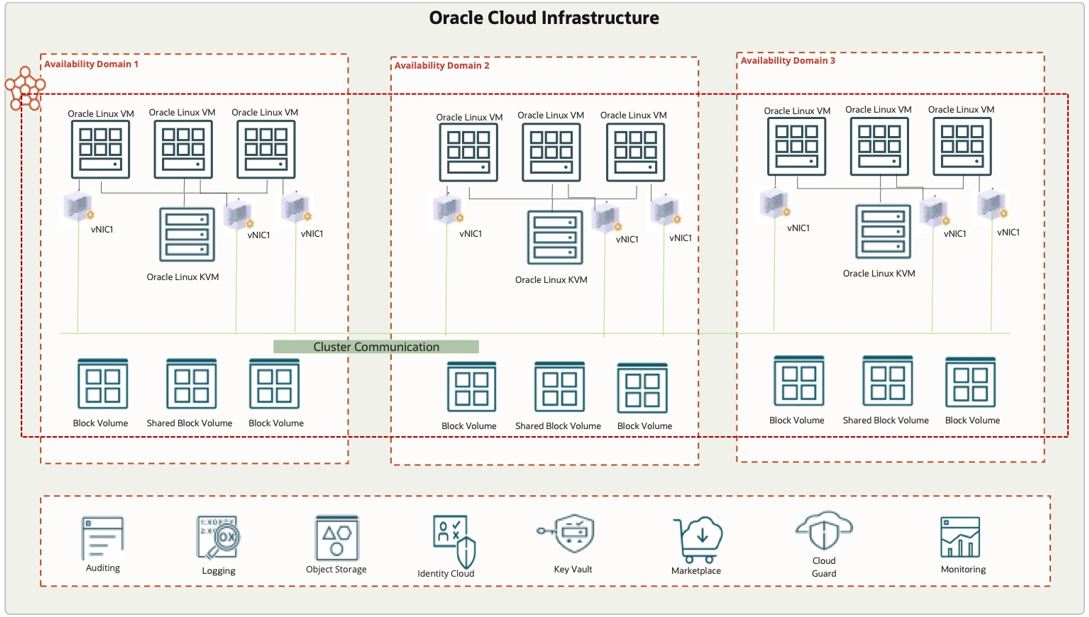More enterprises are embracing a cloud-first strategy today for the best platform and technology for their data management and application development needs. Enterprise applications require a highly performant storage layer that is often shared with multiple applications. As user expectations and data volumes grow, all public clouds must support high-performance shared storage services for faster data access at high transaction volume. Veritas InfoScale is an Oracle Cloud Marketplace offering that provides a high-performance shared storage solution for multiple layers in an enterprise application stack.
Veritas InfoScale is a complete suite of storage and clustering management tools for enterprises that run their mission-critical applications in the cloud. The technology reduces migration frictions by transparently making the same set of data accessible across operating systems and even across cloud providers to help make applications highly available.
Oracle and Veritas jointly worked together to ensure that Veritas InfoScale performed flawlessly on Oracle Cloud Infrastructure (OCI) on our bare metal Compute instances. This blog post describes the different architectures that are validated and now supported both by Oracle and Veritas.
For details about the OCI Compute shape, operating system, and hypervisor supported for Veritas Infoscale on OCI, visit the Veritas support matrix.
Veritas InfoScale solution summary
We validated two types of deployment architecture that are supported both by Veritas and Oracle using bare metal instances with local PCIe NVMe storage and external block volume storage. Each deployment architecture has two use cases: Using a cluster file system and using a flexible storage sharing.
In this architecture validation, we used OCI’s bare metal Compute instance, a high-performance Compute shape loaded with 2×25 Gbps NICs, PCIe NVMe storage, and high-performance attached block storage. We deployed InfoScale intelligent volume management, an advanced high-performance shared file system, and application-aware system clustering for applications running on public cloud.
Veritas Infoscale on OCI bare metal instances
The first architecture deploys Veritas Infoscale directly on the bare metal instance installed with Oracle Linux 7.5 Red Hat compatible kernel. For how to deploy Veritas Infoscale on the bare metal host, see Veritas Support.

In this architecture, Veritas InfoScale is deployed on a bare metal host running Oracle Linux 7.5 with a Red Hat-compatible kernel. By using Veritas InfoScale and the high compute power that OCI provides with other resources, customers can scale out their shared file service on Oracle Cloud and build a shared volume for the mission-critical business applications.
In this architecture, the following use cases were validated with the given limitations:
-
Cluster file system: Single volume shared across multiple Compute instances. InfoScale volume performance remains the same even when shared across the Compute instances within the cluster. Data ownership and consistency can be configured using InfoScale. OCI has a maximum number of Compute instances that can share block volumes with concurrent write access. Configure with hybrid storage using NVMe devices and OCI block volumes.
-
Flexible storage sharing: For network sharing of storage over logical volumes transparent to the applications. InfoScale volumes can be configured to achieve performance and redundancy. InfoScale volume performance is not shared across the cluster node. You can achieve horizontal storage scaling by adding more volumes per node or by adding new node. Configure with hybrid storage using NVMe devices and OCI block volumes.
Veritas Infoscale on Oracle Linux KVM on OCI bare metal instances
The second architecture deploys Veritas Infoscale on virtual machines (VMs) running on Oracle Linux KVM hypervisor and VMs installed with Oracle Linux 7.5 with a Red Hat-compatible kernel. To deploy Veritas Infoscale on Oracle Linux KVM VMs, see the Veritas installation guide.

In this architecture, Veritas InfoScale is deployed on guest VMs running on Oracle Linux KVM host. By applying the high compute power and other resources that Oracle Cloud provides, you can now deploy InfoScale on guest VMs to give on-premises-like scaled-out file server performance. This architecture also meets the requirement of the shared volume use case.
In this architecture, the following use cases were validated with the given limitations:
-
Cluster file system: Single volume shared across multiple Compute instances. InfoScale volume performance remains the same even when shared across Compute instances within the cluster. You can configure data ownership and consistency using InfoScale. OCI has a maximum number of Compute instances that can share block volumes with concurrent write access.
-
Flexible storage sharing: For network storage sharing over logical volumes transparent to the applications. You can configure InfoScale volumes to achieve performance and redundancy. InfoScale volume performance is not shared across the cluster node. You can achieve horizontal storage scaling can be achieved either by adding more volumes per node or by adding new nodes to the cluster.
Customers can achieve the best performance by using the combination of OCI low-latency and high throughput NVMe devices and high durability block volume storage configured with Veritas InfoScale.
Conclusion
Enterprises can now use the Veritas InfoScale as a cluster storage solution on Oracle Cloud Infrastructure to successfully deploy their mission critical applications that require high-performance shared storage on the most secure, performant, and global enterprise cloud.
To learn more about Veritas InfoScale, see the Veritas InfoScale technical overview.
